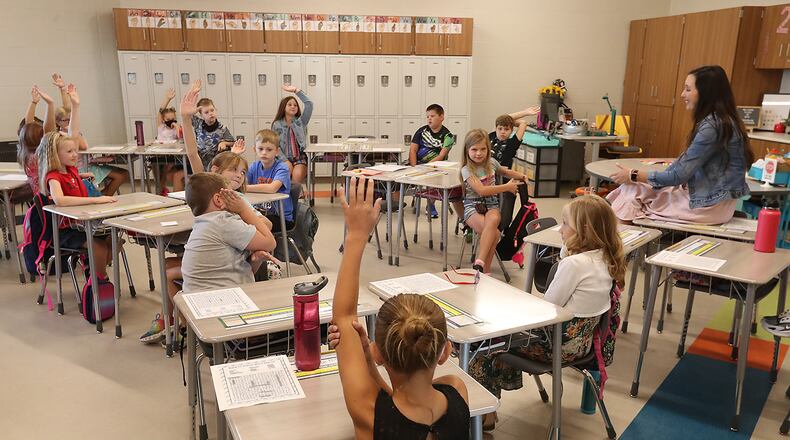House Bill 99, signed into law Monday, will allow teachers whose names are submitted by their local school board to the new Ohio School Safety and Crisis Center to carry weapons on school grounds. Districts are not required to allow staff to carry firearms under the law. However, the bill allows school boards to decide whether they want staff to carry them at all and how much training will be required.
The bill will take effect in 90 days, and school districts across the state will be able to authorize staff and faculty to carry firearms into classrooms after they take up to 24 hours of training. They will also have to undergo a yearly criminal records check.
Local school districts such as Springfield, Clark-Shawnee and Triad prohibit guns, and no changes have been made to district policies at this time.
In Springfield, anyone found to have a weapon on campus will be prosecuted, said Superintendent Bob Hill.
Clark-Shawnee Superintendent Brian Kuhn said the school board and district administration will begin a comprehensive review and discussion process of the law to determine if any policy changes will be made. At Triad, officials would get guidance from outside sources to determine any policy changes.
Under HB 99, districts would have to notify the public that they’re allowing personnel to have access to guns inside the school. In addition, any district that wants to implement a plan would have to go through the school board and a public meeting, and vote would need to take place.
Many schools rely on resource officers throughout the district, including four at Springfield, and one at both Clark-Shawnee and Triad.
“Their presence is key to maintaining a sense of security in our buildings, as well as establishing healthy relationships between the police and our students,” Hill said.
It will require a “comprehensive legislative approach to address the unfortunate epidemic of school gun violence that is currently plaguing our nation,” he said.
“That means limiting access to dangerous weapons by those who should not have access to them, increasing school mental health programs and boosting funding for gun violence — none of those actions should be done independently of one another, but in unison,” he said. “Our schools and the educators within those schools cannot bear the burden of solving this problem. It takes a community and a country to say enough is enough and implement legislation that extends beyond the walls of the school building.”
Lawmakers in Washington for years failed to come to a consensus in terms of addressing gun violence. However, after mass shootings in Buffalo, New York; and Uvalde, Texas, in recent weeks, a bipartisan group of senators announced Sunday they have an agreement. They’re still working on final details of the agreement.
But the framework on the agreement would make juvenile records of gun buyers under age 21 available when there’s a background check; enact “red flag” laws. The proposed legislation also calls for temporarily taking guns from people considered potentially violent; increasing school safety and mental health programs; requiring informal gun sales to obtain federal dealers’ license to conduct background checks; and banning convicted domestic abusers from buying guns.
The House also approved bills banning the sale of semiautomatic weapons to people under age 21 and large-capacity magazines, and giving federal courts the power to rule when local authorities want to remove guns from people considered dangerous.
At Springfield schools, there are emergency plans in place that students and staff are prepared to implement if a threat exists, routine safety drills, and staff goes through annual active threat training.
“Students and staff have been trained to either ‘run, hide or fight’ in an active shooter situation, which has become a common protocol in schools around the country,” Hill added.
Triad also has several safety measures in place, but plans to add more such as locked doors, fob entrance only and drills, and the school resource officers will conduct unannounced district-wide and full-scale drills to ensure staff and students are prepared.
Clark-Shawnee schools plan to review its intruder and safety protocols during the beginning of next school year, and Kuhn noted along with their current protocols, the facilities also include secure entry vestibules that help monitor and restrict entry into buildings.
“It is unfortunate that instruction related to gun violence and school safety are part of our conversations with students. However, they are essential in the wake of the tragic stories that we witness across our nation,” Kuhn said.
About the Author




